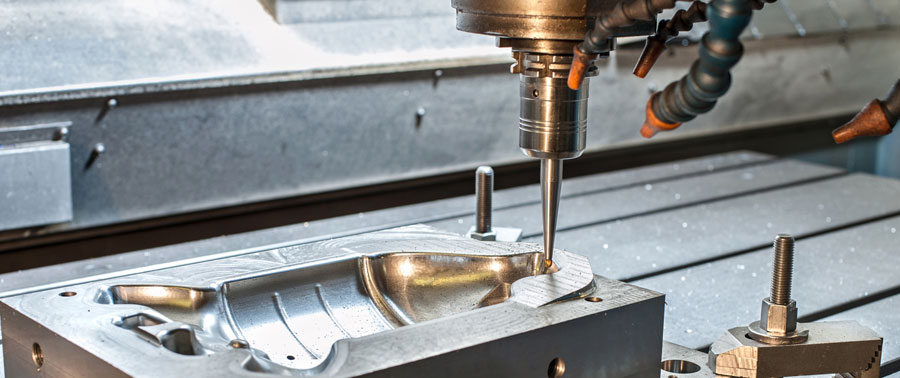Exploring the Efficiency and Precision of Aluminum Casting Machines
Introduction
Aluminum casting is a widely used manufacturing process in various industries, including automotive, aerospace, and consumer goods. It involves pouring molten aluminum into a mold to create complex shapes and structures. To ensure the production of high-quality aluminum castings, manufacturers rely on efficient and precise casting machines. This article delves into the importance of efficiency and precision in aluminum casting machines and explores the advancements made in this field.
Efficiency in Aluminum Casting Machines
Efficiency is a critical factor in any manufacturing process. In the case of aluminum casting, it refers to the ability of a casting machine to produce a large number of high-quality castings in a short time with minimum energy consumption. The efficiency of casting machines is determined by several factors, including the design of the machine, the temperature control system, and the automation level.
One key aspect of efficiency in casting machines is their ability to maintain a consistent and controlled temperature throughout the casting process. Aluminum has a low melting point, making it prone to solidification before completely filling the mold cavity. Therefore, maintaining precise control of the temperature is crucial to prevent defects such as shrinkage and porosity in the castings. Modern casting machines are equipped with advanced temperature control systems, including sensors and automatic regulation mechanisms, ensuring a stable and optimal casting temperature.
Furthermore, the automation level of casting machines plays a significant role in their efficiency. Automation reduces human intervention, minimizing human errors and increasing the overall productivity. Advanced casting machines now feature automation systems that control the pouring of molten aluminum, the movement of the mold, and the ejection of the castings. These automated processes not only save time but also improve the precision of the castings by eliminating manual errors.
Precision in Aluminum Casting Machines
Precision is another crucial aspect of aluminum casting machines. It refers to the ability of the machine to produce castings with precise dimensions, intricate details, and minimal defects. Achieving precision in casting requires a combination of factors, including the accuracy of the mold design, the control of the casting parameters, and the quality of the molten aluminum.
The mold design plays a fundamental role in achieving precision in aluminum castings. The mold should be designed to allow the molten aluminum to flow smoothly and fill the entire cavity without any interruptions or turbulence. Advanced CAD/CAM software is used to design molds with complex geometries and ensure the precision of the final castings.
In addition to the mold design, precise control of the casting parameters is essential. Parameters such as pouring temperature, casting speed, and solidification time need to be carefully monitored and controlled to achieve the desired precision. Modern casting machines are equipped with sensors and monitoring systems that continuously measure and adjust these parameters, ensuring precise and consistent castings.
Moreover, the quality of the molten aluminum used in the casting process significantly impacts precision. Impurities in the aluminum can cause defects, such as gas porosity and inclusions, which affect the precision of the castings. To ensure high-quality castings, manufacturers employ advanced filtering and degassing techniques to remove impurities from the molten aluminum.
Advancements in Aluminum Casting Machines
In recent years, significant advancements have been made in aluminum casting machines to enhance their efficiency and precision. One notable development is the integration of artificial intelligence and machine learning algorithms into casting machines. These technologies enable real-time analysis of casting parameters, allowing the machine to optimize its performance and make adjustments for the best possible results.
Furthermore, the use of 3D printing technology in mold production has revolutionized the aluminum casting process. 3D printing allows for the creation of highly complex and intricate molds with improved precision and reduced lead times. This advancement not only enhances the precision of the castings but also provides manufacturers with greater flexibility in design customization.
Conclusion
Efficiency and precision are crucial factors in aluminum casting machines. The advancements made in temperature control systems, automation, mold design, and casting parameters have significantly improved the efficiency and precision of these machines. With further advancements in artificial intelligence and 3D printing, the future of aluminum casting machines looks promising, ensuring high-quality castings for various industries.
-

- Bicycle Freehub 12/14/16 Inch Children Bike Low Rider Bikes Magnesium Aluminum Alloy Children Bicycle 3-8 Years Old In Stock
-

- Magensium mountain bike frame
-

- OEM korkeapainepainevalu magnesiumseoksesta valmistettu runko polkupyörälle
-

- Magnesium alloy die-casting Auto parts headlight frame
-

- Magnesiumseoksesta valmistettu jäykkä haarukka polkupyörän räätälöityihin painevalettavissa metalliosiin
-

- Magnesiumseoksesta muovattava, painevalu UAV-osat C

 0086-750-5616188
0086-750-5616188 +86 13392089688
+86 13392089688 sales@zhongmei-tech.com
sales@zhongmei-tech.com







